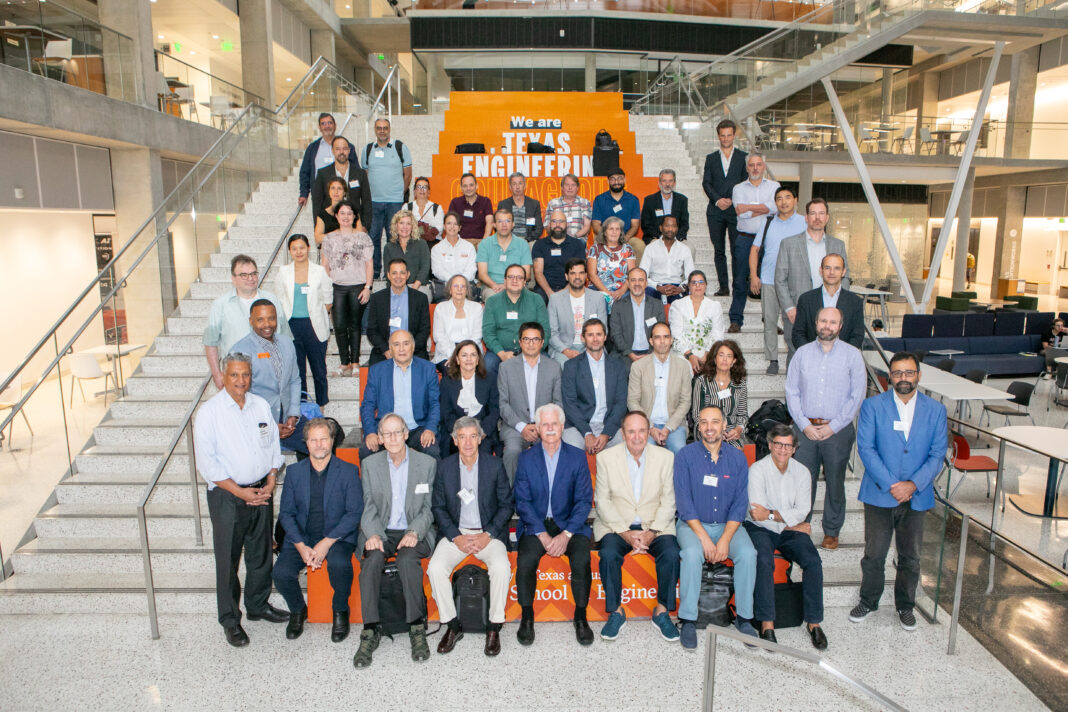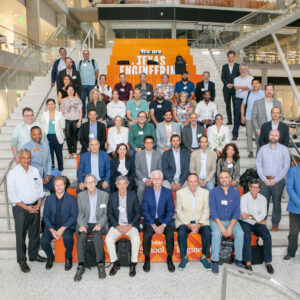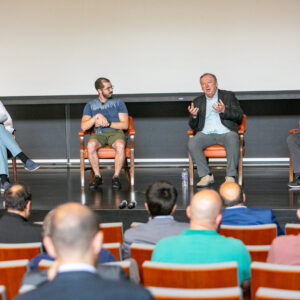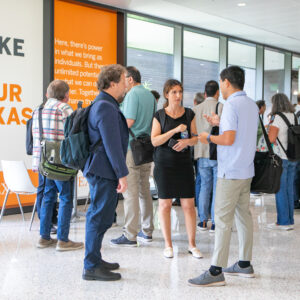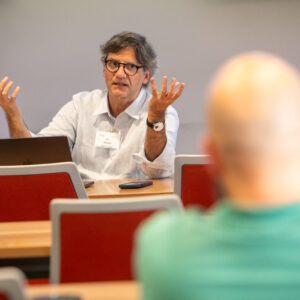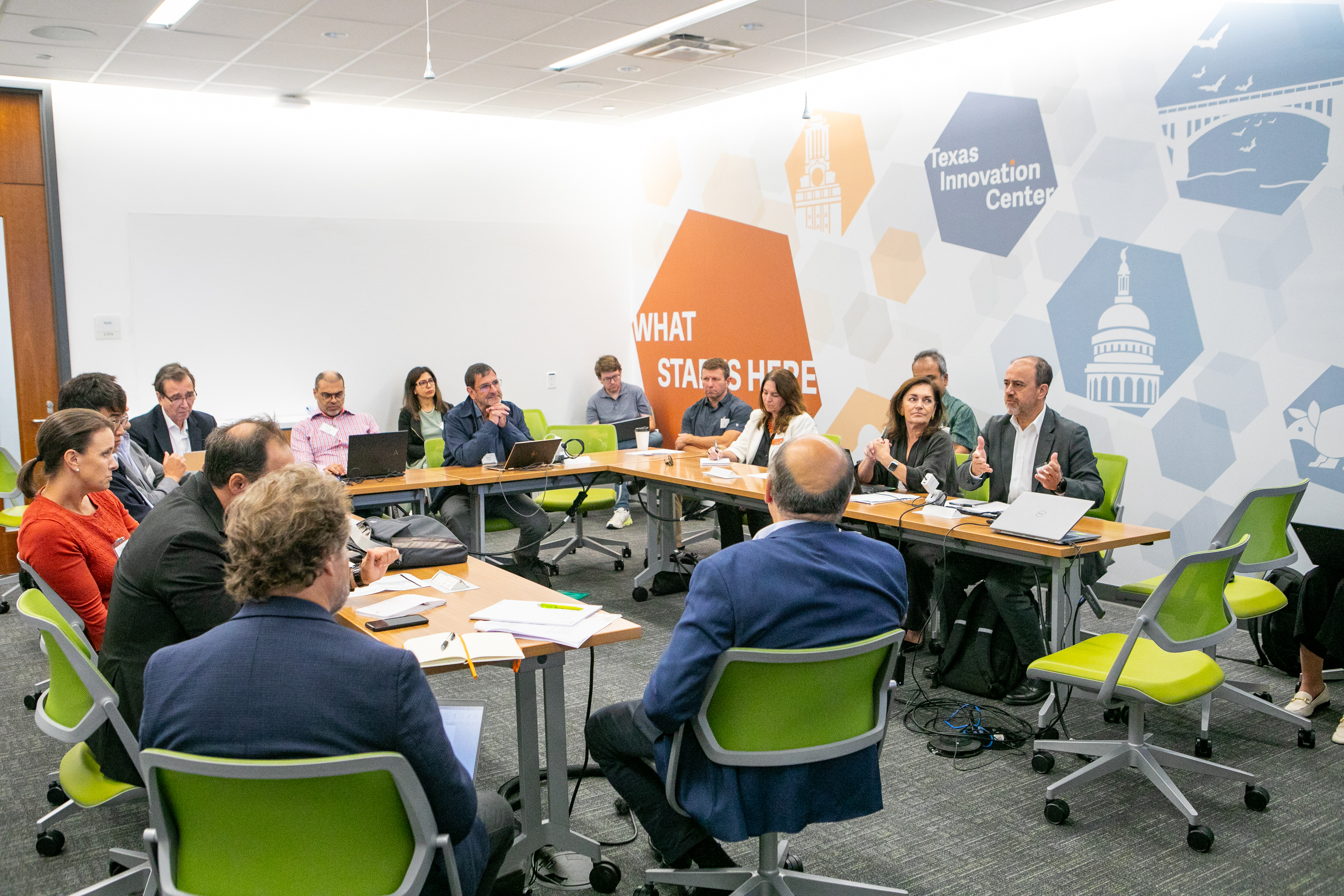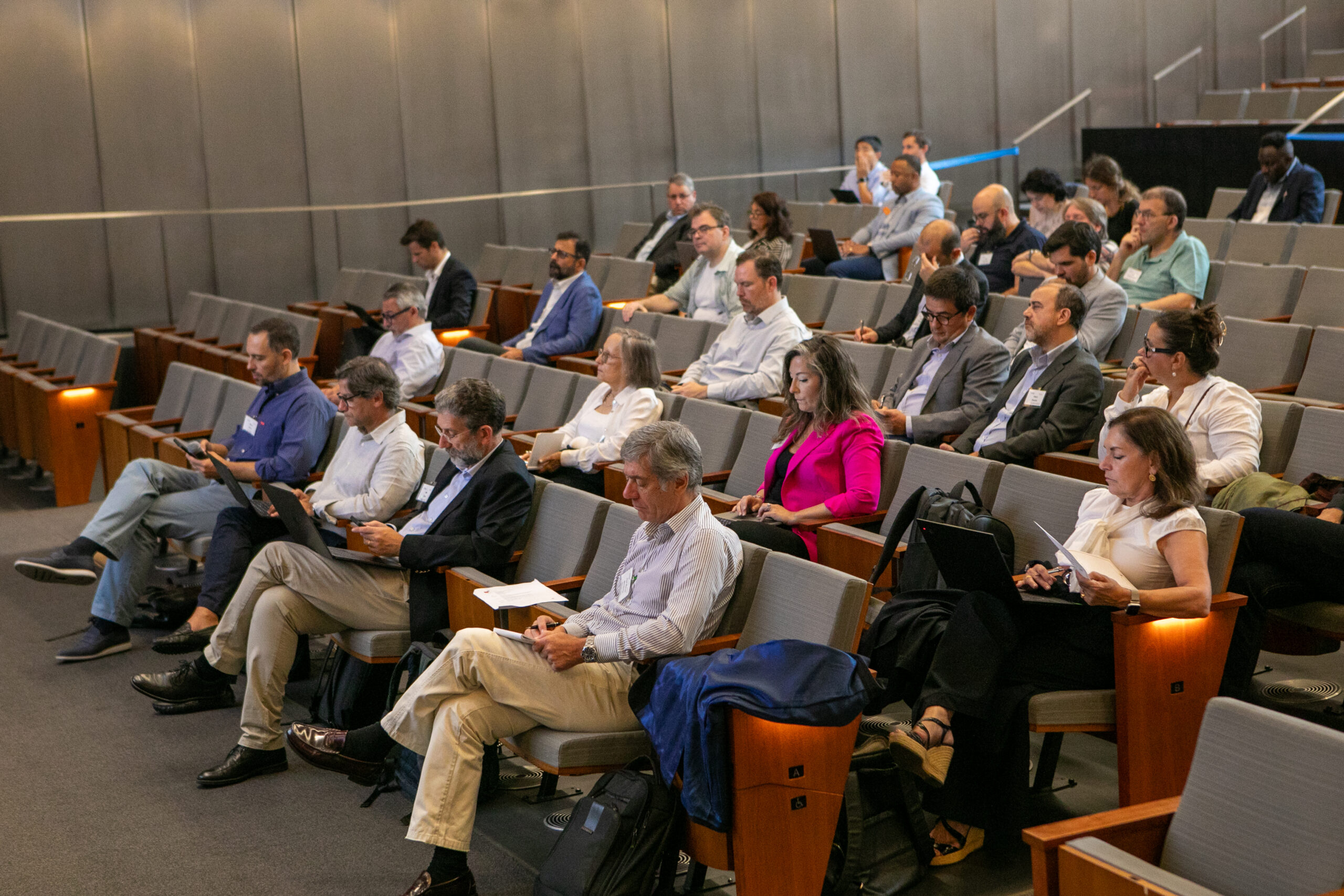Read here the Report from the UT Austin Portugal Colloquium
With the aim of discussing future opportunities for collaboration in research, education and innovation on both sides of the Atlantic, more than ninety researchers from UT Austin and various academic, research and government institutions in Portugal met in Austin on September 10 and 11. The first conclusions of the UT Austin Portugal Colloquium will be presented during the Program’s Annual Conference on October 29.
The event was designed to be a participatory, community-based exercise, with participants from different areas of expertise and sectors, with the objective of chartering future collaborative opportunities in research, education and innovation across areas of recognized societal impact and aligned with priorities shared by Portugal, the EU and the US: Clean Energy, Nanotechnologies, Advanced Computing, and Space-Earth.
“We invited participants to identify opportunities that could draw upon the unique strengths and priorities both from Portugal and UT Austin to sustain long-term collaborations capable of generating results and impact unlikely to be achievable elsewhere or through a different partnership”, explains Marco Bravo, Co-Principal Investigator and Executive Director of the Program at UT.
Several experience and knowledge-sharing moments were part of the agenda: round tables with leading experts from both sides to look specifically into how the Program could go on transforming and impacting Portugal and transatlantic relations; networking moments to build new connections and strengthen new ones; and guided tours of some of UT Austin’s most advanced research labs and centres (e.g.: TACC; The UT Battery Center; the MicroGrid Lab; the Hydrogen@Scale Facility; Center for Space Research).
“Through these different moments,participants brainstormed the future and were allowed to have a grasp of what the UT Austin ecosystem is all about and why what starts (t)here (really) changes the world”, concludes.
The Colloquium was organized and hosted by UT Austin Portugal’s office at UT, with the support of the Program’s Leadership and Executive team in Portugal. The outcomes of this participatory exercise shall be laid out in a report to be presented this year to the Portuguese Ministry of Education, Science, and Innovation (MECI). Also, the first conclusions and recommendations due to come out from the Colloquium will be presented during the Program Annual Conference.
The credits of the photos used to illustrate this news piece belong to UT Austin.

